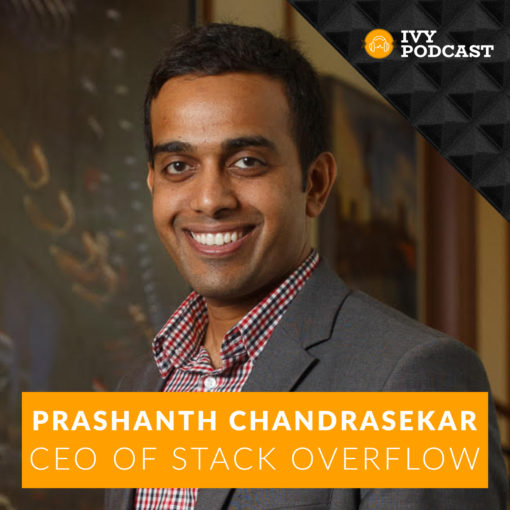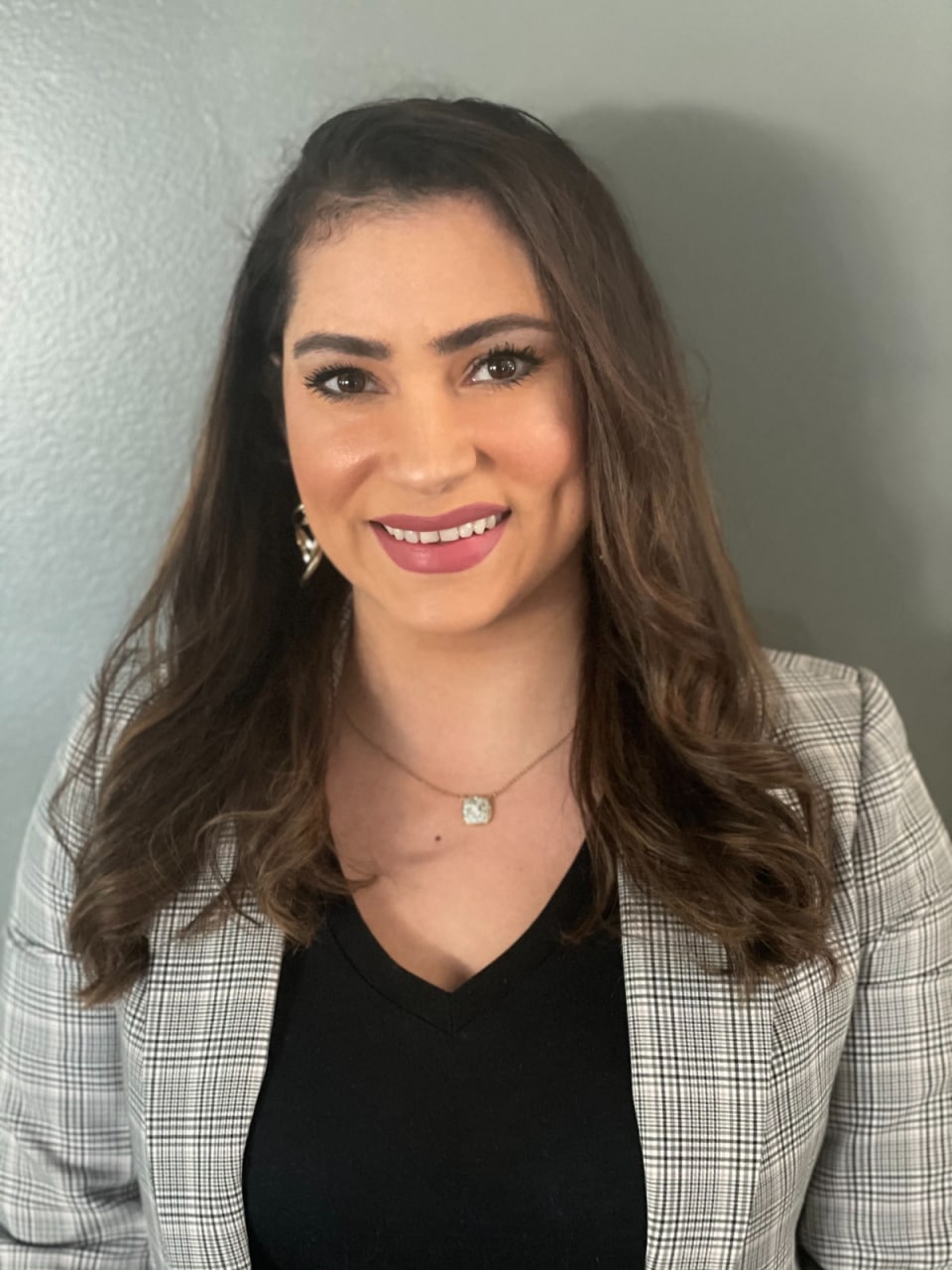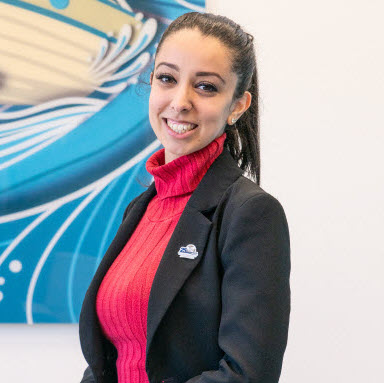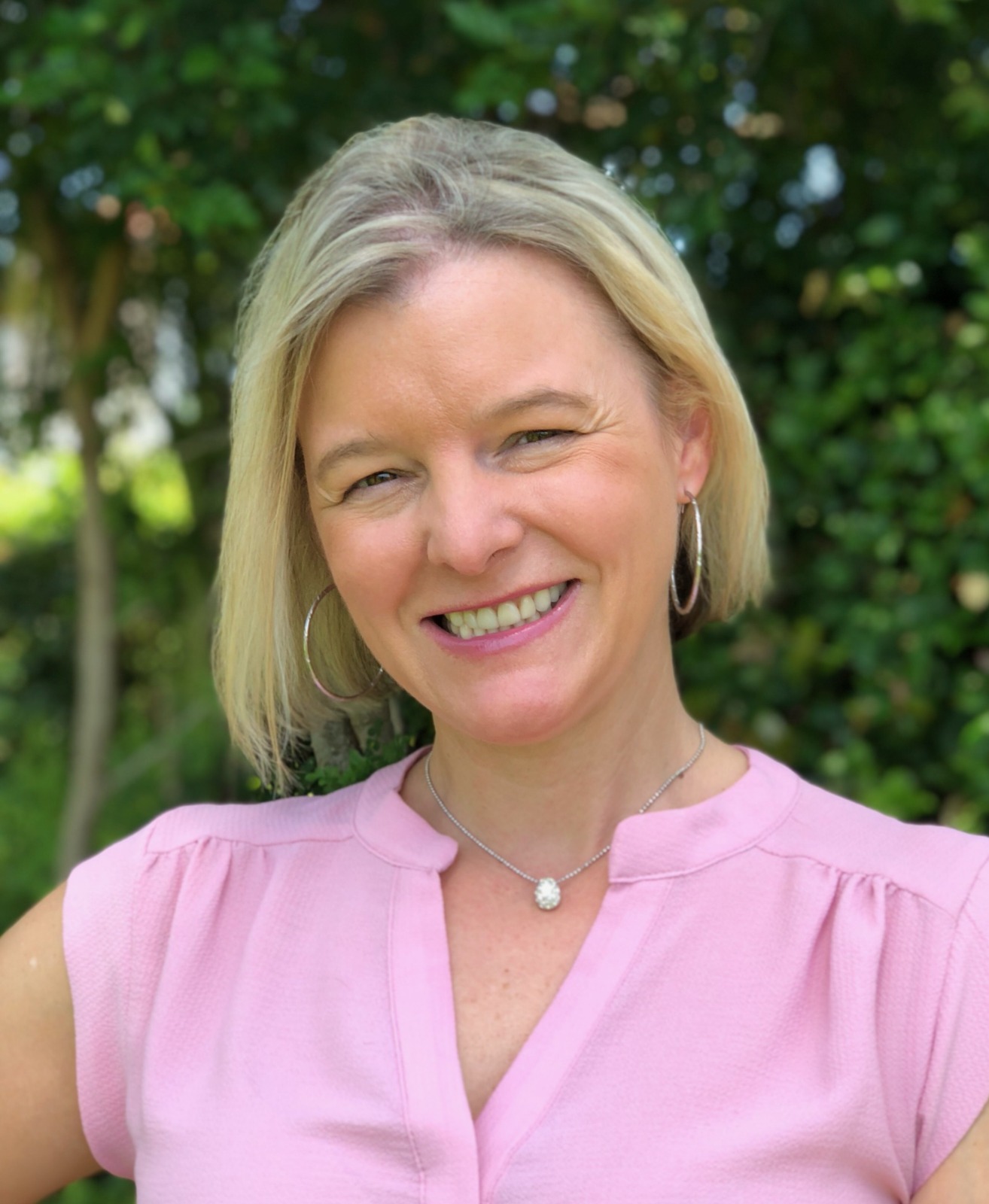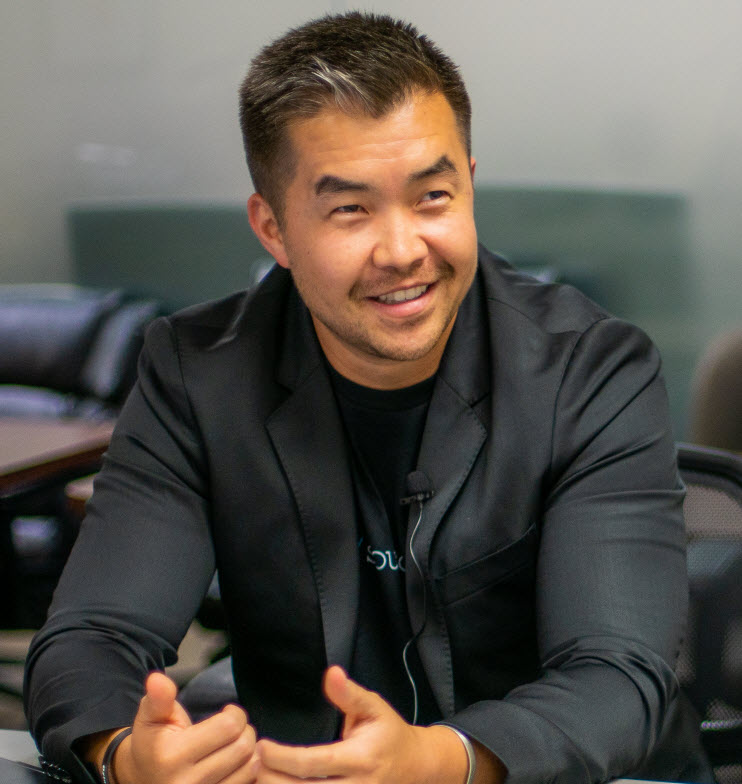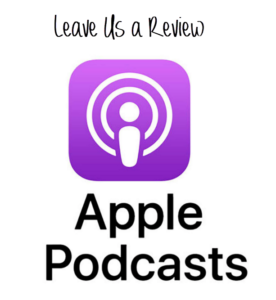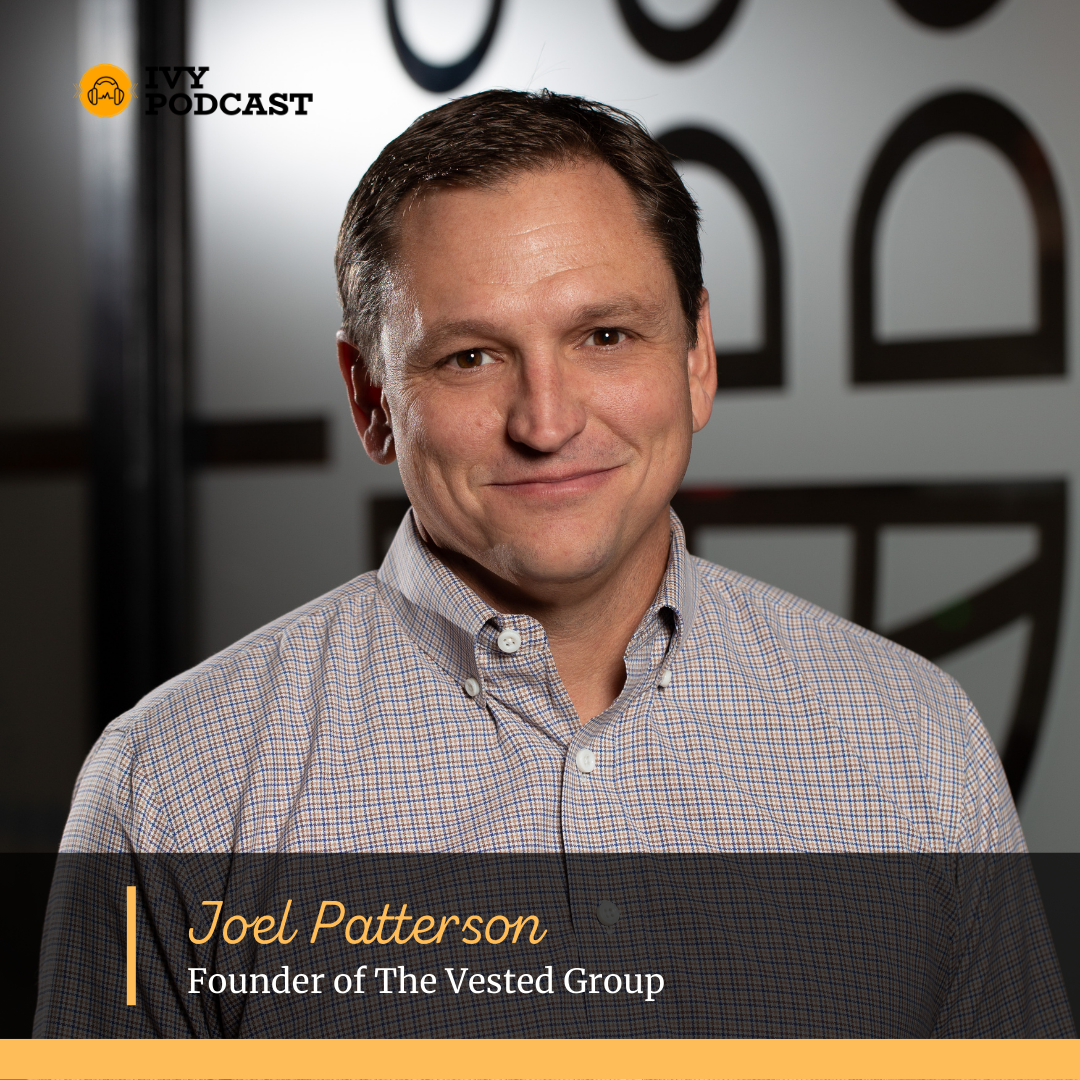
Joel Patterson is the founder of The Vested Group, a business and technology consulting firm in the Dallas, Texas area. Joel has worked in the consulting field for over 20 years. He began his consulting career at Arthur Andersen and Capgemini before helping found Lucidity Consulting Group in 2001.
For 15 years Joel specialized in implementing Tier One ERP, software systems designed to service the needs of large, complex corporations with many departments and locations. These systems were too complex and expensive to meet the needs of his smaller customers.
With the small-to-medium market in mind and years of experience under his belt, he founded The Vested Group in 2011. The Vested Group focuses on bringing comprehensive cloud-based business management solutions to start-ups and well-established businesses alike. Joel and his exceptional team at The Vested Group strive to exceed client expectations and deliver solutions and support that allow companies to thrive.
Joel holds a bachelor’s degree in Business Administration from Baylor University. When he’s not creating a fun company culture at The Vested Group, Joel enjoys watching baseball with friends, listening to new music, and spending time outside. He attributes his success to his lovely wife and his patience to his children.
Episode transcription:
[00:00:00] Joel Patterson: [00:00:00] Recruiting has become the number one thing. And we want to always keep that recruiting pipeline filled because we're always looking for really solid culture fits and people that want to learn. And that doesn't just happen when you're in a hiring mode. So you've always gotta be thinking about that and you have to have recruiting in a hiring process that matches it. So what we've done, because we struggled with it just like. Any company, but we've got a process that we're pretty happy with now, and it really starts with a video. So what we tell people is that when you want to apply or you're interested in the organization, whether you were referred in, or you came in through an ad, we will ask you for a two minute video about why you're a good fit for the Vested Group. And that's all the instructions that we give. You're listening to Ivy podcast, where we feature weekly leadership conversations with thought leaders and industry experts. Now, here is your host, Courtney Dominguez. [00:01:07] [00:01:00] Cortney Dominguez: [00:01:07] Joel Patterson, welcome to the Ive Podcast. Thanks for hanging out with me today. [00:01:13] Joel Patterson: [00:01:13] Thank you, Courtney. Glad to be here. [00:01:15] Cortney Dominguez: [00:01:15] It's been a while. So, tell me a little bit about, obviously tell our listeners about your background and also about the Vested Group. [00:01:23] Joel Patterson: [00:01:23] They're heavy too. So, Courtney and I have known each other for a lot of years. And if I've done a lot of work together over the years though, it's been a little while, so I had been in the ERP space for over 20 years. And for those of you who don't know what that is, it's basically enterprise, software and really the process of developing requirements and working with companies to define who they want to be, what their future state really looks like. And then implementing a system to support that growth and that expansion in all phases of their business, whether it's accounting and financials or order taking. And we work a lot with industrial manufacturing companies. So we get to work with a lot of companies that are doing some really cool things, making new products, but also companies that have been doing the same thing for a lot of years. Like we've got a company that makes electrical cable. So, for homes. So there's a good variety of companies that we work with. This is the cool thing about this industry and you and I got to work together a long time ago, implementing these systems for various companies, so, yeah, that and I'm actually working on my second company now started a first one in 2001 and had some failure with that company. And that's really what got me to where I am now. And that company, we had a lot of early growth, and a really cool culture at the beginning, but that kind of fell apart as we grew. And we didn't know why. And that really became the impetus of the vessel group. To make it all about the culture and really believing that the way to run a successful business is to make sure that your people are happy. And that's really what we've come to do. [00:03:07] Cortney Dominguez: [00:03:07] So let's talk about that a little bit, because I know creating culture has been really important to your company. It's been critical to the success of your business. So what are some of the things that you've done to cultivate that and how are you keeping people happy? [00:03:21] Joel Patterson: [00:03:21] Yeah, it's truly the number one thing. So with the last company, like I was saying, we grew and we were, and then all of a sudden we became very virtual. And as soon as we became an organization where we couldn't keep tabs on everything that was going on with everyone, it's sort of, we just lost that connection. And with this one, what we've decided first is that we want everybody to be together as much as possible that it's not always going to, especially these days. That's not always possible, right. People working remotely or people just located somewhere else. And so then it became about, well, how do we be intentional about that? How do we make sure that our culture is meant to be regardless if they live in Dallas, where we're based or where else in the country? And there's a lot of things that one of the main drivers of it for us is on this concept of coaching. So we've really tried to change how we interact with our people, how supervisory, relationships, function, all of those things that people are used to in a normal business. We want them to be less about telling people what to do and more about helping our people become better versions of themselves and allowing our managers to really focus on, Hey, how do I invest in my team as opposed to, how do I tell my team what to do and how do I constantly worry about whether or not they're getting their stuff done? How do I actually invest in them so that they become more self-driven. They know more about where their blind spots are and where their strengths reside. So we've done a lot around coaching and we have multiple people that help us with that in that we have one person that's focused on strengths finder, if you've ever heard of that, used to be Clifton StrengthsFinder and Gallup actually purchased them. And that's a really nice, easy way for people to learn about themselves. And like my top five strengths are our learner and input and competition, futuristic. And I can't remember the other one. But learning to be at the top is really important for me because I do that's who I am. I love learning about new things. And just being able to identify what that is through this coaching process really allows people to, Oh yeah, I'm good at that. I didn't even think about that, but I'm good at it. And same with the bottom strengths. So that's one way to, it's really sort of very delicately walk into this kind of coaching process. And the other one is that we actually have a process to find a 12 week process. People go through call leadership, authentic leadership, and that is really about recognizing who they are as a person and really understanding what their limiting beliefs might be. And then that was developed over time through coaches or through teachers or parents. But then really trying to understand who your authentic self is. And it sounds like it's more personally focused and it is, but we're believers in that this work-life balance thing that doesn't really exist anymore, it's almost a turn that is negative because it separates the two and it makes it seem like one is bad. The other's good. We want to say that they are completely interconnected and there's no way that you can have a successful business professional life if you're miserable personally, and vice versa. And just recognizing that they do impact each other and allowing people to step into that and try to learn about what they've got going on. And we found that that really does improve engagement and productivity and all the things that you want your people to be through a simple process that they have to be willing to go through, but really is something that we invest in them. And we've thought so far. [00:07:03] Cortney Dominguez: [00:07:03] So obviously you're seeing a very positive impact, right, by having this program. And have you seen, or your employees really, are they embracing it and they kind of appreciate the journey that I guess that they go on through this process. [00:07:16] Joel Patterson: [00:07:16] It really throws people off at first. Like it is because it is unique and it is sometimes people think, Oh, that sounds a little new agey. I'm not sure I'm really bought into that, but as we've rolled it out to more people and we've got people that have taken it, talk about it with other people and recognize that, Hey, this is really just about you improving yourself. It's been very well received so much so that the people, I mean, they kind of come out of the woodwork once they get it and say, Hey, this has really changed my life. And that sounds really grand. So I don't want to say that this is going to change everything you've got going on, but for some people it does. And for others, just the knowledge of knowing who they are and how they become that way really allows them to shift gears and be who they want to be. So from a business perspective, what that really has done is allow us to really keep up on our attrition and turnover. This industry has very high turnover. There's always, usually back when I used to work for Arthur Anderson. Right? So for the four kinds of things, there was always somebody in one of those big, before big fixed speaking, six companies, there was throwing out money, trying to recruit as many people as they could. And that would get people bouncing around. And we don't want that. We want people to really be engaged in our business, be engaged with our clients and their colleagues. And we also feel like replacing somebody as a hundred to $150,000 effort. So it's not cheap. So for us, this just going through the process, investing in our people, making sure that they're connected and engaged, there's a real dollar value that's tied to that. And so when you're in an industry with typical 15% turnover, and you can keep that to four or five, I mean, there's real dollars there and that's really what we want to do now that the dollar side of this is a great benefit. This is really more about investing in our people and that's just, it's kind of fun, it's really the right way to run your business. And so, we keep our focus on that, but the fringe benefits are really significant. And especially during this COVID time, just like everyone we've been that prides itself on culture. I've not found a way that we can inject or share our culture with people over a zoom call. You and I have a relationship we haven't really spoken for a long time, several years, the fact that we had a phone relationship, we can just jump right back into it. And it's no big deal at all, and that's the kind of thing that we want to make sure we've got here is that even if I don't see somebody for a year, I have that relationship developed with them where we can be old friends in no time. And we wanna be able to do that at work too. Especially when you get into these projects, that can be very challenging clients, there are a lot of changes that we bring to a client and they don't like it all the time. They know it's a necessary thing to go through, but it's not fun and it's not easy. And so we're when our people are in those environments where they can get very challenging and sometimes even aggressive. You want them to have that bond that allows them to be effective, even in a difficult situation. [00:10:23] Cortney Dominguez: [00:10:23] Yeah, absolutely. So attrition rates in the technology sector tend to hover around 13% and in large companies it can be upwards around 23%. So, Google, Yahoo, some of the big ones that have very high attrition rates. Talk to me a little bit about, I guess the culture, not just the culture, but hiring into this culture. I mean, I'm sure that when you're hiring these folks in that. You think a lot about how they're going to fit. And I've heard other people talk about how that's probably even more important than having the right skillset. You can teach skills, but you can't necessarily teach somebody to fit into a culture. You know, they have a personality. So how do you go about making sure that you're getting the right people and when you're hiring into the organization [00:11:07] Joel Patterson: [00:11:07] Yeah, you're absolutely right. I mean, recruiting has become the number one thing. And we want to always keep that recruiting pipeline filled. Because we're always looking for really solid culture fits and people that want to learn. And that doesn't just happen when you're in a hiring mode. So you've always gotta be thinking about that and you have to have a recruiting and a hiring process that matches it. So what we've done, because we struggled with it just like any company, but we've got a process that we're pretty happy with now, and it really starts with a video. So what we tell people is that when you want to apply or you're interested in the organization, whether you were referred in, or you came in through an ad, we will ask you for a two minute video about why you're a good fit for the Vested Group. And that's all the instructions that we give. And it's funny how over time, you see the differences and how people prepare for that. They mentioned your core, values and purpose. Are they just reading from a script? It's not that there's a wrong answer. It's that you see you just, you pick up on who this person kind of is by how they respond to it. And when you watch a hundred of them, you can really tell the difference now. Sometimes we have videos of people that have worked out really well. The video wasn't great, different personality types, and you take all that into account, but as long as they have made the effort, because we have some people who will try and then they just give up and then they remove themselves from applying and that's okay. There's nothing wrong with that. And that saved everyone time. But if they do a decent job on that, we'll have them in and then they go through a three-step process. From there, they'll go through three different interviews to make sure that culture fits. And what we ask our people is about something we would call the Sunday test. So when you're interviewing this person and you may not know a lot about them, but certainly when you're sitting down with them, you're going to get some level of a vibe. If that person were to ask you and say, Hey, I've got I'm behind. I really need some help on Sunday. Can you come in and help me out? And yeah, you just met this person, but what does your instinct tell you? Does it tell you that this is the type of person that you're going to want to help out then? Yeah, because that may not be the best of the best use of your time. But if you feel that that desire, that interest to help that person, then they pass the sundae test. And it's very simple for people to understand, but it is maybe the most important piece of that, because you can learn the scale. But you can't necessarily learn, necessarily learn how to be a good culture fit. That's really about being authentic and being who I feel like we've spent some [00:13:41] Cortney Dominguez: [00:13:41] Saturdays, Sundays, late nights, a lot of those together, if you don't have the Anderson days. [00:13:49] Joel Patterson: [00:13:49] Yes. For sure. I think about those are the times those are the memories that you remember. It's kind of miserable sometimes in the middle of it, but those are the things that you look back on. You're like, man, that was actually kind of fun, even though it was hard. We had a good time and those are important. [00:14:02] Cortney Dominguez: [00:14:02] Yeah, absolutely. No, there's a couple of Sundays. I can remember that. Maybe that's not what I wanted to be doing at the time, but I look back on it now with fond memories. So those are the ones that stick, not the Monday, Tuesday, Monday through Friday, it's the Saturdays and Sundays. So tell me a little bit, you mentioned culture in the beginning having kind of an environment where things were more virtual and obviously over the past year. Lots of things have been more virtual, whether we liked it or not. And I know, in your culture, you like everybody to be close together, but obviously over the past year that wasn't probably the case where most people could be together. So how did you keep the company culture and keep, I guess, that feeling of being together when you couldn't be together, how did you make sure that you were still addressing that even over the difficult time over the past year. [00:14:52] Joel Patterson: [00:14:52] Yeah. So we certainly changed what we were doing and how we're going about it. And you're right. I mean, I continued to come into the office the whole time and a lot of days I was here by myself and it was really just because I just, I liked the energy of it and it felt like I needed that. Being an effective leader. But what we quickly realized is that we needed to shift a little bit. I mean, the overall messaging is still the same, but how we deliver it, how often we deliver it. A lot of that needed to be modified. So what we've done is we've over the last year, really focused on four things. Transparency in that, what we tell people and how we tell them nobody expects us to have all of the answers going into what's happened over the last year. But they do have every expectation that you are doing everything you can define them. And to come up with a way for us to get through this. And so that has been key in that we have never once said, Hey, we've got all the answers for this. It's more about, this is what we're trying. This didn't work, but this is what we're trying now. And it is working and continuing that process until we find things that have done what we needed them to do. So transparency is one, providing purpose is very critical in that if people are bored or they're slow or they that's the worst. I mean, that sounds great for some people like, Oh, well, I can just sit around and do nothing, but when you're alone at your house and you don't have that regular contact and you feel like you just aren't fulfilling, what you need to do is take chances. You're getting a lot of negative emotion from that. So having purpose and that just means work in a lot of ways is important. Communication is the third one, and that's really in both directions, just making sure that we're communicating one of the major things that I've changed in the last year is I do. I started doing a weekly video. I brew every Friday or sometimes it comes out over the weekend, but I'll send out less than 10 minute videos of the whole company, just, Hey, this is what we've got going on. And I've gotten really good feedback from that. And that's something that I'll continue to do even long-term every week, if we don't have our monthly meeting, they'll get a video. And then the final thing is fun. Just having a good time and finding ways for people to connect early on, we were a lot of virtual happy hours and things like that. And we've had to get a little bit more creative to make sure that people are engaged. But you've got to do that if they don't have that opportunity to talk outside of work, somehow, you're going to lose some of those connections. So transparency, purpose, communication, and fun are really the main things that we focused on in the last 9-10 months. [00:17:23] Cortney Dominguez: [00:17:23] I think communication's been really critical for everybody really, because it is so easy to fall behind your video, behind your screen and not really connecting with people and not asking, how are you doing? How to make sure people are okay. And I think that more and more I'm hoping that's one of the things that really sticks coming out of this is that people are really empathetic and trying to make sure that everybody's all right. And reaching out because I just feel like that's a lot harder to do when you're not sitting next to somebody in the office and you don't see them coming in and having a bad day or cause it's just easy to turn your camera off and say, I'm having a bad day and leave me alone, that's that is tough. [00:18:01] Joel Patterson: [00:18:01] And that's the thing that I don't think we've got an answer for yet. Although there's some very 1984-ish thought police products coming down the pike where they'll do some, so they'll analyze your posture or your facial expressions and things, and really give you kind of a, Hey, is everything okay? That's a weird one. I don't know exactly how I feel about that yet. Because sometimes you do just have a bad day and you don't necessarily need an AI calling you out on it. [00:18:30] Cortney Dominguez: [00:18:30] Right. He's in a permanently bad mood, just leave her alone for the next month. [00:18:36] Joel Patterson: [00:18:36] Exactly, exactly. So, we'll see how that ultimately plays out, but that is the piece that I think is still missing from the new work from home world is how are we dealing with people that are having a rough day or consistently having a rough day? How do we keep them engaged? We don't have all the answers for that yet, but you're the one thing I do know is it's going to take intention. Nobody's just going to be able to fall into that. You're going to have to do things that are intentional of you reaching out and making sure that your people are okay. [00:19:03] Cortney Dominguez: [00:19:03] Yeah, I absolutely agree with that. I think you 're making sure that you're doing those things cause it's just not going to happen on its own. So, hopefully, we'll be able to transition back into the office sometime soon and things will get back to whatever normal is? So it's probably not going to be exactly the same, but I'm sure, like I said, I hope there's a few of these things that really do stick because Zoom, happy hours are fun, but regular happy hours are a good time as well. So be good to get back to those. [00:19:34] Joel Patterson: [00:19:34] And I'm okay with going to restaurants and people's wait staff. So wearing masks, some of these things are okay too. So see how they play out. [00:19:43] Cortney Dominguez: [00:19:43] I'm a big fan of the QR codes for the menus. I really like to have it on my phone and I don't want to touch a dirty menu. So I'm all good with that. That can stay around for a long time as far as I'm concerned. So it's all good. So let's talk about diversity. So diversity in tech, I mean, this has been an issue forever. There's a lot of statistics that show that it really hasn't even gotten that much better. Although, I know a lot of companies make efforts to do that. In December Harvard business review published an article that said that tech companies really need to start thinking outside of those tech hubs, right? They need to start thinking outside of New York, California, Massachusetts, and move to where the talent is clustered in. And I think now more than ever a lot of people you're seeing these people leaving some of the big cities and going to where they have more space and being able to get out and have a yard. And Texas was actually highlighted as one of those areas where there's a very high tech diversity scale is what they call it at the HBR. So you happen to be located in Texas as well. So tell me a little bit about what you think needs to be done as far as creating a culture that's inclusive, and increasing the diversity in it. [00:20:56] Joel Patterson: [00:20:56] Yeah. I mean, it's an interesting problem. So, my background is I've got siblings that are African-Americans. So I grew up kind of in that world. And it was interesting when all the social justice stuff started happening this year, how throughout my life, I'd always kind of put myself in a different category because of my background and what I realized this year that that's not right. There's still assumptions that I make, or maybe certain things that get said that I don't even take into account that might be creating issues. So, I think we've all learned, hopefully, everyone's learned something this year, but I think that the biggest thing when it comes to our industry is really just going back to being intentional. When we're in, like even right now, we're in active recruiting mode. And when I look at the people that we've got on our list that we're talking to right now, there's a lot of white male, and it's not because we don't want to talk to women or to minorities. That's not the case at all. A lot of times that we just don't get applicants. And so what we've done is we are intentionally reaching out to people that we believe we could recruit and would be a good fit and create some diversity for us internally. Because we want that. I mean, I like diversity. Diversity is really kind of what brings new ideas and, and it's a good thing. So we're just having to be a little more intentional than what we were before and our numbers are pretty decent. We just looked at him, so we are about a third women, just under 33% and we are just under 25% minority. And on the grants scale, that's actually pretty good. But it's even 33%, if the world is half women, half men and we're trailing pretty far behind on just that, so yeah. For us, I do see improvements on both sides on minorities in it, as well as women. Those numbers seem to be going up, but there's still a long way to go. And I think a lot of it is just making people understand that this is a good industry for them. I think for a long time, because we were a high travel industry, women would tend to fall out of that, especially if they were in their time for potentially having kids. And nowadays there's so much like we've got women here. We've got one that just came back from her second maternity leave and it's worked great. We're able to modify some of how she works, even before COVID she was doing a lot of work from home. She wants to stay engaged in the company and keep working. So we want to support that. And she's, I mean, she actually started, she was one of our first hires and was a functional consultant. Now she's a developer. I mean, she's done all these great things and we want her out talking to people. And we want her out talking to kids and really supporting that. We've got a couple of ladies here that started an IT for women networking group. Because there aren't a lot of those running around. They actually just launched that last month. So those are the kinds of things. I think that it's going to take that, to get people excited about the industry and to let them know that this is a good industry for them, because the thing you can do here that you can't do in most is you can learn. So much about business and how companies are run, where they struggle because you get to bounce around a lot. And so for anybody that likes a little excitement, a little volatility in what they do, excitement yeah. Outside of it relates exactly. But for us, for those of us in it, it is exciting. There are a lot of really cool things that can be done and we just need to continue to push that out and get out there and talk to, especially the kids that are coming up through the ranks right now and let them know what reality is. [00:24:28] Cortney Dominguez: [00:24:28] I think, right now it's such a great time for kids because there's so many STEM options that they don't even know, that they're learning and they don't even realize that they're kind of in that IT space. I see a lot of my daughter's friends and they're doing roadblocks or they're doing Minecraft. And I just read an article today about a guy who's making $500,000 a month. He's in his twenties and he's just doing it by streaming, playing games. Like, I don't know about you, but I should have really, I may reconsider it still, but I mean, $500,000 a month to do that is pretty, pretty incredible. And to be in your twenties, I mean, I could work one month and be happy. I wouldn't even need a couple of months. I could do one month and then vacation for the rest of the year. So, there's so many new options, I think out there when we were in school, it was, you went to school. If you wanted to really get into IT, you got a computer science degree and then you became a developer. So, but now there's so many great options, and I think you're right. I think it's about educating and talking to kids about IT because there's a lot of options you don't have to just be a program or you don't have to be a computer science nerd or whatever you can have a lot of different ways to get into the industry. [00:25:47] Joel Patterson: [00:25:47] It really forces them to think about problems differently. That's what I liked is they have to get through that kind of if then else sort of that's and that's really what we're going for. If you can just understand those kinds of dependencies in how you solve problems. I mean, whether you're coding or whether you're just working on a business process, it's the same kind of thought process that you go through. And that helps them a lot. Just getting exposed to some kind of IT logic. [00:26:12] Cortney Dominguez: [00:26:12] Yeah. I hear you. And back to what we were saying earlier, I think that's something that's very difficult to teach. I don't think you can necessarily teach problem solving or analytical skills. I mean, it's really working on that and developing IT. It's not like I can tell you how to get from A to Z, you really have to try to figure that out on your own and the baths aren't always the same. There's different paths to get there. [00:26:33] Joel Patterson: [00:26:33] Sure. [00:26:35] Cortney Dominguez: [00:26:35] So Joel, as somebody, I mean, you've been a serial entrepreneur for a while. I mean, you came from Anderson, but since then you've done a lot of other things and created several successful companies. So tell me and tell our listeners, I guess, what advice you would give and what are some of those lessons learned? It sounds like you shared a few of those already talking about how your first company now your second company and culture obviously is one of the big factors in that and maybe the factor, but what are some of the other lessons learned that you would share? [00:27:06] Joel Patterson: [00:27:06] Yeah, I think the biggest thing is it sounds simple, but you need a plan, right? And there are several tools out there that can help you with this, but one way to make just the overall experience of running a business easier is to follow a plan. We use something called Rockefeller habits, which are some 10 habits that Johnny Rockfeller really believed in how he grew his companies. And that's a scaling up philosophy. There's also one called EOS, which is an entrepreneurial operating system. They're kind of similar and they're really based on three things. One is having meeting rhythms. So we have a daily huddle. Everybody in the organization participates in a daily huddle, which takes about 10 minutes in the morning. And then we have a weekly leadership huddle. So, one of the things is making sure you've got rhythms. The second thing is having an aligned leadership team. And making sure that you've got a group that is driving your business forward. And the final thing is having a critical number or two. And that's really how you determine the health of your organization. There's a lot of things that make that up, but what it does is it really allows you to get your organization in an easily communicated plan so that everyone understands what you're trying to accomplish. Part of building that plan is identifying your core values and your purpose. And those should drive everything. You're hiring our business pers purpose, the best job ever. And with that, we want our people. That means something different for everyone, but we want our people when they're sitting down with their grandkids someday. And describing what their best job was and their career. We want them talking about this place. And so we believe that. what I mean, you've got to own that. So that along with our six core values is really how we run the business. And unfortunately, a lot of times people hear mission statements or values or whatever, and it gets sort of just kind of brushed aside because for a lot of years it was just something hanging on the wall. But if you don't do that and you have actually taken this stuff to heart and you actually make your decisions based on it, you'd be shocked at how much it simplifies things. So making sure that you've got that. And then the final thing I'd say is just authenticity. You gotta be you as you're investing in people, as you are recruiting, as you're working with your clients, just be you. I think we've gotten. I still run across people like this where it's kind of like Gordon Gekko, or they think that if they yell at people, right, that's how you manage well, and that's how you create it. That's just so not true. And it's the polar opposite of that you want people to see that you care and that you want. So, when you want to see them grow, when it creates an opportunity for them to grow, if you do that, I think people will believe it they'll trust you. And when you get to that level of trust and vulnerability that you need, then that's really when things just take off and you can focus on the stuff that grows your business. So, have a plan, whether it's Rockefeller habits or something else, make sure you've got values and purpose, and then just be authentic. I think that will serve you really well and invest in your people. [00:30:16] Cortney Dominguez: [00:30:16] Do it all day, Joel, I am looking forward to being able to get on a plane again soon and coming to hang out in Texas. So in visiting you and seeing your company there. So thank you so much in the meantime, we'll have to do this virtually from now on, but thank you for coming on the Ivy Podcast with me and sharing your insights. It's been great. [00:30:34] Joel Patterson: [00:30:34] Absolute pleasure, Courtney, look forward to getting on the road again as well. And we'll see you in the airport. [00:30:41] Cortney Dominguez: [00:30:41] That's right. And if nothing else, we'll see. So you're in Miami, right? [00:30:44] Joel Patterson: [00:30:44] Yes. Ma'am [00:30:45] Cortney Dominguez: [00:30:45] All right. Cheers. Thanks, Joel. We really hope you've enjoyed this episode. Please take a moment to rate, subscribe, and leave a review on your preferred podcast listening platform. We really appreciate that effort until next time.
Welcome to Ivy Podcast! On this Executive Leadership Podcast we interview top executives from Fortune 500 with a focus on strategy, innovation, negotiation and everything about leadership.
Our Podcast for Executives features Thought Leaders who share practical insights for effective leadership, continuous innovation and strategy execution.
Ivy Podcast is a rapidly growing Executive Podcast, which covers topics like Hiring and Retention Strategies, Talent Acquisition, Innovation, Digital Transformation and much more.
On this Leadership Podcast, you will find conversations with the most accomplished executives from Fortune 100 companies. We aim to cover a broad range of industries and create a learning platform for the most ambitious and high potential professionals who are looking to learn from the most accomplished Executives on this Business Leadership Podcast.



